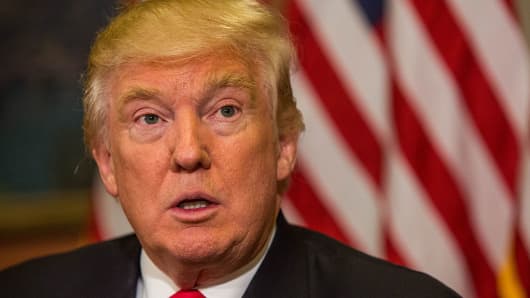Like political pundits who failed to call the election, economic analysts are looking at the Donald Trump presidency as "The Art of the Possible" as opposed to "The Art of the Deal."
Despite the fact that many, including myself, expected a different outcome, one must be far more dispassionate about analyzing what this means for markets and the economy.
I think the financial markets are telling us, loudly and clearly, that President-elect Trump's deals are all quite possible.
The jump in stock indexes, including two consecutive record highs for the Dow; the run-up in banks, financials, pharma and bio-tech; the explosion in the price of copper; the shocking jump in interest rates and a meaningful slump in emerging markets, all tell us that investors are making large-scale bets that a Republican president, and Republican Congress, will move swiftly to enact as much of candidate Trump's agenda as swiftly as possible.
The first thing that a President Trump can and, will likely, do is reverse many of President Obama's executive orders.
He can also roll back specific regulations, like the Department of Labor's Fiduciary Standard rule for financial advisors.
That rule requires F.A.'s to put a client's interests before his, or her, own; offer greater transparency on potential conflicts of interest and disclose more about how they are compensated when selling specific products.
The rule, opposed by the financial services industry, to a certain extent, could have been a profit-limiting regulation, which is now expected to be among the first regulations removed from the books.



